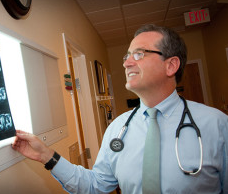 Gallbladder pain is unmistakable if you have ever experienced it. It can range from a dull ache to a sharper debilitating doubling over kind of pain that seems to go straight through your core.
Gallbladder pain is unmistakable if you have ever experienced it. It can range from a dull ache to a sharper debilitating doubling over kind of pain that seems to go straight through your core.
It is alarming to say the very least. With so many organs in your abdomen, there are many reasons this area can be experiencing pain. If you haven’t previously had a gallbladder attack you may not be able to pinpoint what it is without some medical intervention.
Let’s see if we can help narrow it down for you:
Where is your gallbladder located? The gallbladder sits in the upper right part of your abdomen just under your liver. This organ’s purpose is to store and concentrate bile, provide bile salts for fat digestion, and it also helps cholesterol transport and recycling.
Gallstones, for the most part, begin to form in the gallbladder when the cholesterol cannot be kept in a dissolved state, so it begins to crystallize and turn to stones. When these stone get larger, they’re known as gallstones. If they don’t affect bile movement a person will never know these stones are there because they have no signs or symptoms. Stones can be seen with imaging techniques such as ultrasound or CT scan.
A person’s gender and race seem to dictate the likelihood of developing gallstones. For example, gallstones are prevalent in 5 percent of black males but 64 percent in Native American women.
How do you know if your pain is gallstone pain? The pain you feel will be located in the upper center or right of the abdomen; this pain will be persistent for one to six hours, especially after eating fatty/rich foods. Often, this obstruction in the bile duct will resolve on its own and pain will disappear; however, if this pain lasts longer than six hours, the pressure in the gallbladder builds leading to distension, inflammation, and swelling; this is referred to as cholecystitis.
If a patient has cholecystitis and it is quickly diagnosed, it will be treated with fluids, bowel rest, and antibiotics. If they have another attack, gallbladder removal (cholecystectomy) is a recommended. If not treated right away, the cholecystitis symptoms will worsen; a person will become feverish, nauseous, and even vomit. The pain will begin to spread up to the upper part of the back, and this is when a person usually heads to urgent care or the ER.
Serious cases of cholecystitis can lead to further and more life-threatening complications such as infection of the liver bile ducts, gangrene of the gallbladder, and pancreatitis. All these conditions require hospitalization, drainage, and antibiotics.
If a cholecystectomy is needed, gallbladder removal, this is a same-day surgery and patient can eat later in the day or the following day. A person doesn’t need a gallbladder to survive. Without the gallbladder, only small amounts of fat can be digested at a time. If a person consumes too much fat, he or she will experience diarrhea.
If you been experiencing abdominal pain, it’s time to see your doctor. Gallbladder issues, left untreated over time will get worse. If it’s extreme and you are unable to see your doctor quickly, head to the ER or an urgent care center. For a primary doctor in the Fort Myers area, contact Dr. Kordonowy of Internal Medicine, Lipid & Wellness. Through an examination and testing, Dr. Kordonowy can diagnose the cause of your stomach pain. To book an appointment, click here or call 239-362-3005, ext. 200. Dr. Kordonowy is a concierge doctor and provides direct primary care services.
 Blood tests help your physician discover potential underlying health issues. It is recommended to have a blood test done yearly in order to check levels. The question most of us have is “What are they looking for?”
Blood tests help your physician discover potential underlying health issues. It is recommended to have a blood test done yearly in order to check levels. The question most of us have is “What are they looking for?”
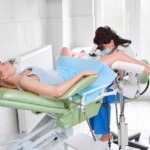
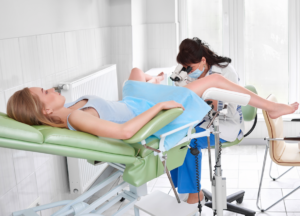 If you have had a routine pap smear exam, which is suggested for women every three years, and it has come back repeatedly with a result of abnormal cells, your Gynecologist may suggest that you have a colposcopy done to further examine the situation and get a better gauge of your cervical health.
If you have had a routine pap smear exam, which is suggested for women every three years, and it has come back repeatedly with a result of abnormal cells, your Gynecologist may suggest that you have a colposcopy done to further examine the situation and get a better gauge of your cervical health. 
 Gallbladder pain is unmistakable if you have ever experienced it. It can range from a dull ache to a sharper debilitating doubling over kind of pain that seems to go straight through your core.
Gallbladder pain is unmistakable if you have ever experienced it. It can range from a dull ache to a sharper debilitating doubling over kind of pain that seems to go straight through your core.
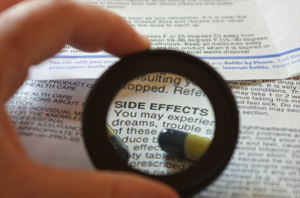 Oddly, the answer may be “yes”.
Oddly, the answer may be “yes”.
 Irritable bowel syndrome – and the uncomfortable abdominal pain, gas and chronic diarrhea or constipation that goes with it – can be a mild inconvenience or a severe impediment to daily life, affecting an individual’s social and professional habits. Two out of every three people with IBS symptoms are female, according to the International Foundation for Functional Gastrointestinal Disorders.
Irritable bowel syndrome – and the uncomfortable abdominal pain, gas and chronic diarrhea or constipation that goes with it – can be a mild inconvenience or a severe impediment to daily life, affecting an individual’s social and professional habits. Two out of every three people with IBS symptoms are female, according to the International Foundation for Functional Gastrointestinal Disorders.
 Breaking out in hives can make you crazy. The itching, the scratching, it can be so intense it keeps you up at night. Nothing seems to help and until you know the source, you feel doomed to bouts at pretty well any moment.
Breaking out in hives can make you crazy. The itching, the scratching, it can be so intense it keeps you up at night. Nothing seems to help and until you know the source, you feel doomed to bouts at pretty well any moment.
 Sleepwalking can be problematic for not only the sleepwalker themselves but for anyone living with them. Erratic night time behavior can leave the walker exhausted, never really getting a deep sleep and the person or people around them sleepless and on edge.
Sleepwalking can be problematic for not only the sleepwalker themselves but for anyone living with them. Erratic night time behavior can leave the walker exhausted, never really getting a deep sleep and the person or people around them sleepless and on edge.
 Doctors spend over a decade on schooling, sometimes more depending on the choice of specialty. Is it any wonder that they come out speaking a whole other language than the rest of us?
Doctors spend over a decade on schooling, sometimes more depending on the choice of specialty. Is it any wonder that they come out speaking a whole other language than the rest of us?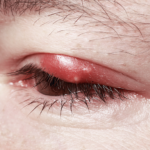
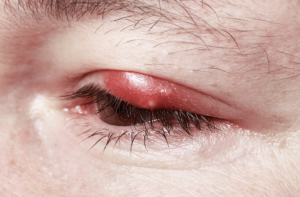 What IS a stye?
What IS a stye?